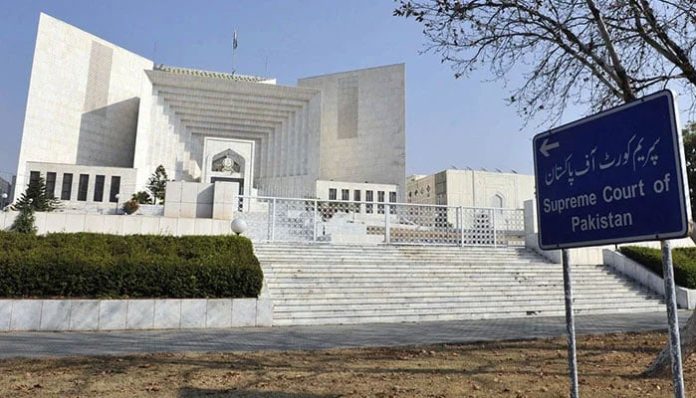ISLAMABAD, Oct 03 (APP): A full court bench of the top court on Tuesday adjourned hearing till October 9, in cases pertaining to the Supreme Court Practice and Procedure Act 2023.
A 15-member full court bench presided by Chief Justice of Pakistan Qazi Faez Isa heard the petitions against the act introduced by the Parliament. The petitioners’ lawyers continued giving arguments before the bench during hearing. The proceeding of the cases was broadcasted live through Pakistan Television.
During the course of proceeding, addressing the petitioners’ counsel the CJP remarked that first the constitution, then the law and then the precedents would come for references in this case.
He observed that the effects of this law would be especially on chief justice and two senior judges. The powers of CJP were not reduced rather it were shared in the act, he said.
The CJP asked the lawyers to tell whether the act is contrary to the constitution or not. If the legislation is making the path of justice smooth or difficult for public, he questioned.
He said that the Parliament had stated that they have enacted the right legislation, which had increased the independency of court. He asked whether the lawyer thinks that there should be no right of appeal, that the decision of the SC should be the final?
The CJP remarked that if there are things in the law against the constitutional it could be declared null and void. He asked the lawyer to just tell if the parliament has the power to make the law or not.
Justice Munib Akhtar said that the question is about legislative authority. Whether the Parliament could regulate the internal affairs of SC, he inquired.
Justice Ijazul Ahsan questioned the petitioner’s lawyer that which section of the Act conflicts with which constitutional provision, and how the access to the justice was affected with legislation.
Justice Athar Minallah said that giving access to the justice is the basis of the constitution. Whether the parliament is not authorized to legislate for the betterment of the people, he asked.
He asked the lawyer that whether he could give an example that the rules of an unelected body are superior to the law made by an elected body.
Earlier giving arguments, petitioner Niazullah Niazi’s Lawyer Ikram Chaudhry said that the parliament had tried to interfere the judiciary through this act. It is also important to see the situation of the parliament when this act was passed, he said.
The lawyer said that we do not have a record of the proceedings of the Parliament to which the CJP asked that if he had requested the Speaker for the record of the proceedings? If you did not requested action under your right to information then do not argue on this point, Justice Isa said.
The lawyer said that this court was authorized to terminate the act as it had also viewed a constitutional amendment in Rawalpindi bar case.
Ikram Chaudhry Advocate said that this is not his case instead it belong to the whole nation. Addressing the lawyer, the Chief Justice said that you should fight your case, you are not the representative of the nation. While completing the arguments, the lawyer said that he would submit the rest of the arguments in writing.
Petitioner Muddasir Hassan’s Lawyer Hasan Irfan said that Parliament did not have the power to enact this legislation.
The CJP questioned the PTI’s lawyer that what is the issue to his client party with the right to appeal in Article 184/3? Why PTI not raised its stand in Parliament, he asked.
PTI’s lawyer Uzair Bhandari said that he was not responsible for the political decisions of his party. He said that it would be fine only if the parliament passes legislation according to the constitution. The PTI’s lawyer also concluded his arguments.
Later, the bench adjourned hearing of the case till October 9.
The full court was comprising CJP Qazi Faez Isa, Justice Sardar Tariq Masood, Justice Ijazul Ahsan, Justice Syed Mansoor Ali Shah, Justice Munib Akhtar, Justice Yahya Afridi, Justice Amin Ud Din Khan, Justice Sayyed Mazahar Ali Akbar Naqvi, Justice Jamal Khan Mandokhail, Justice Muhammad Ali Mazhar, Justice Ayesha A Malik, Justice Athar Minallah, Justice Syed Hasan Azhar Rizvi, Justice Shahid Waheed, and Justice Musarrat Hilali.

